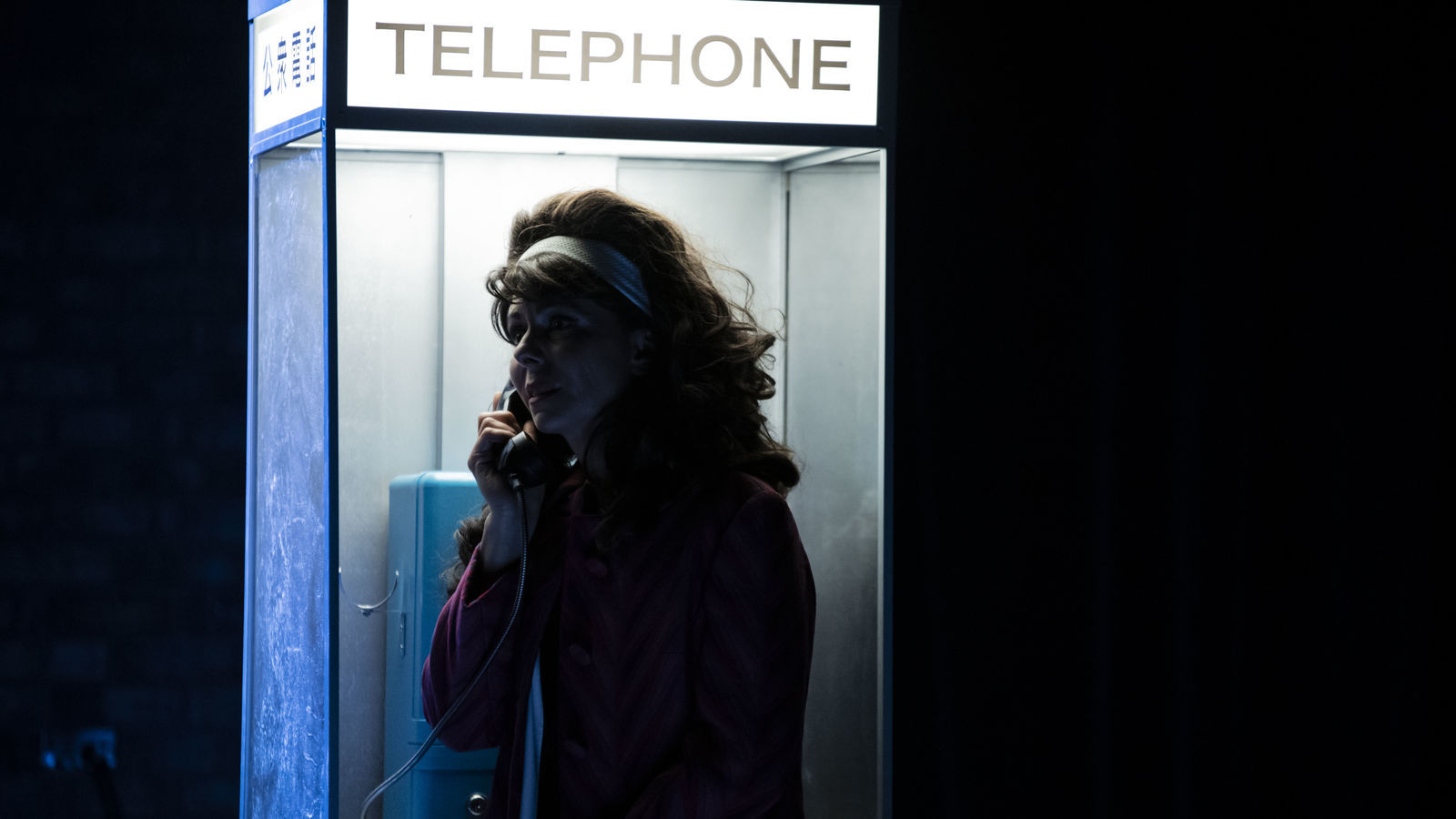
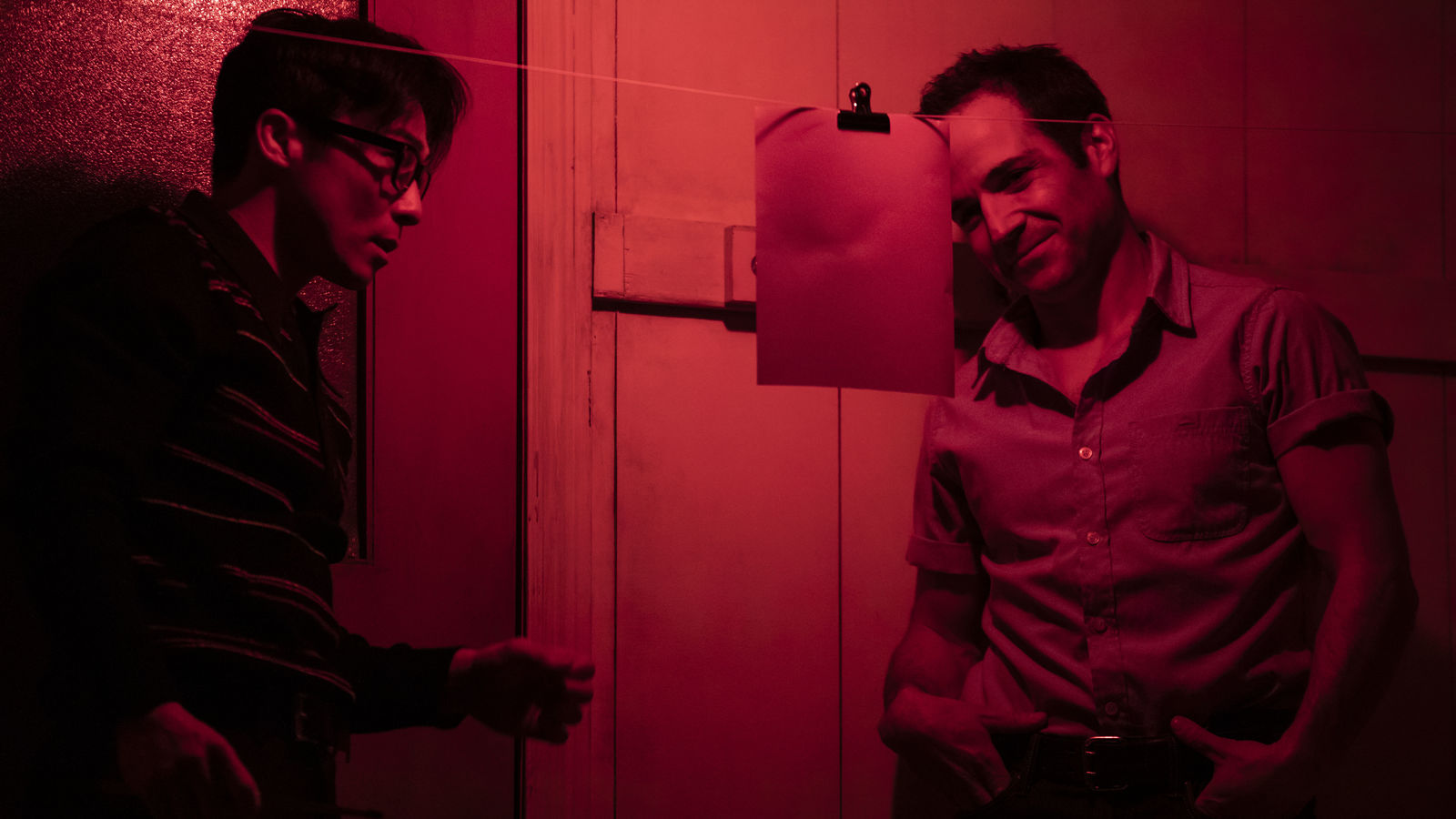
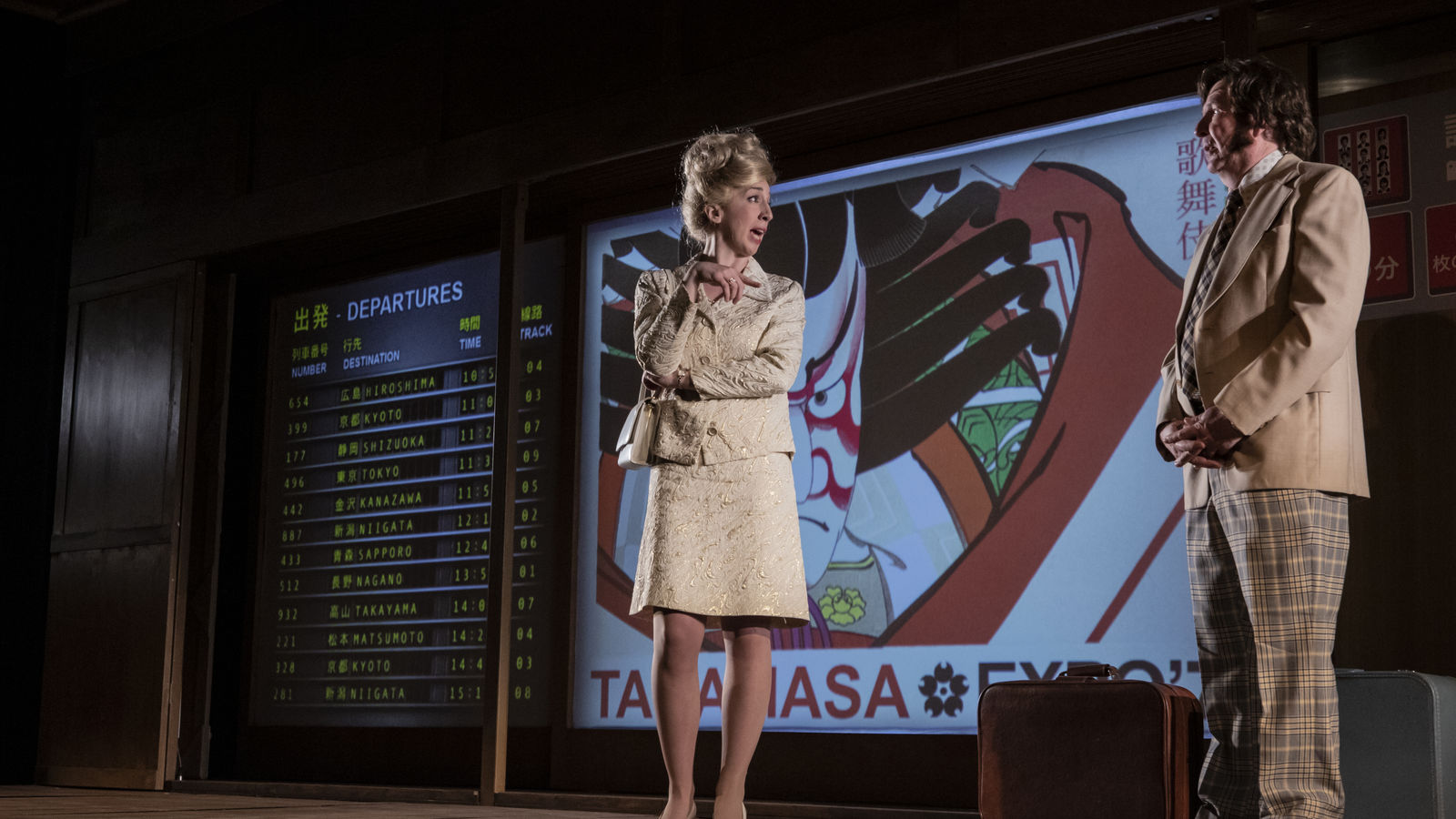
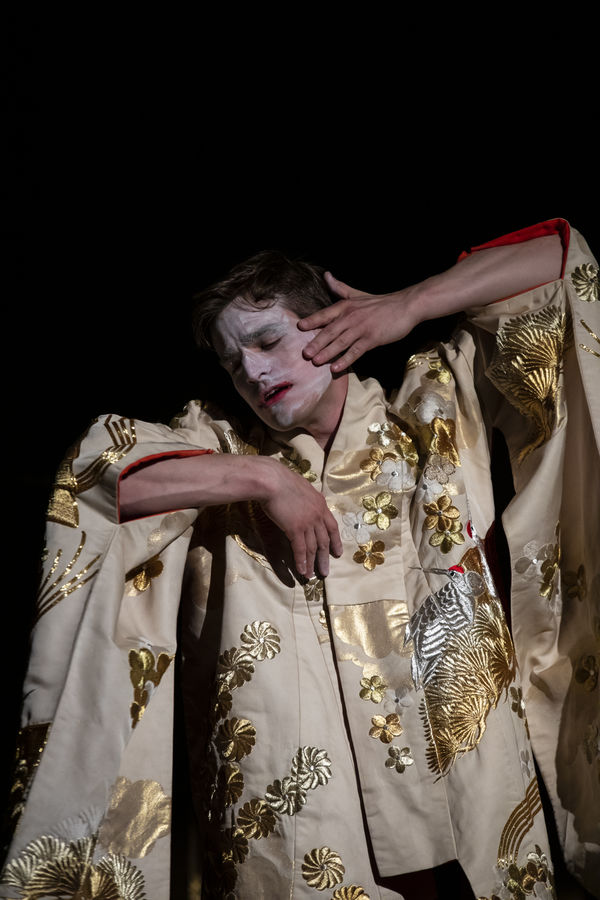
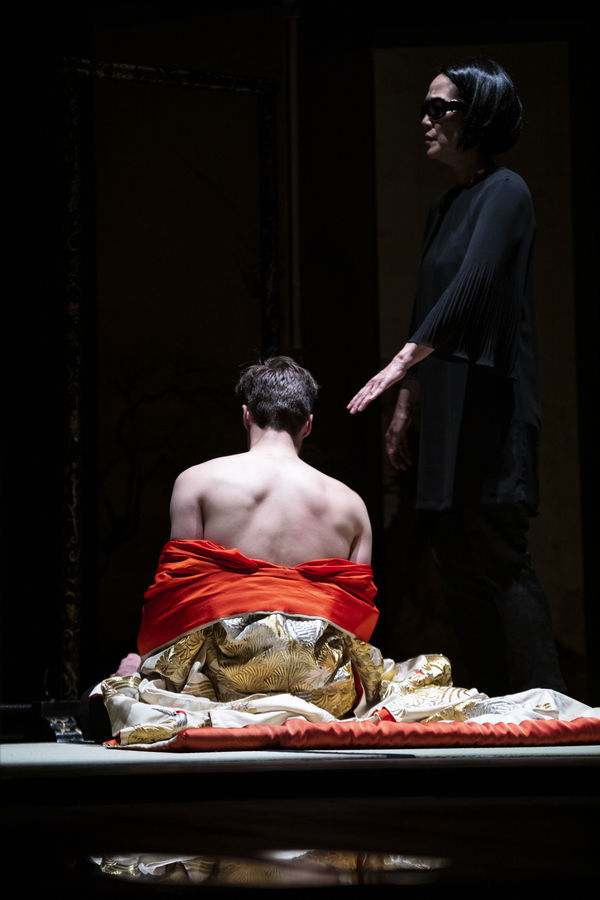
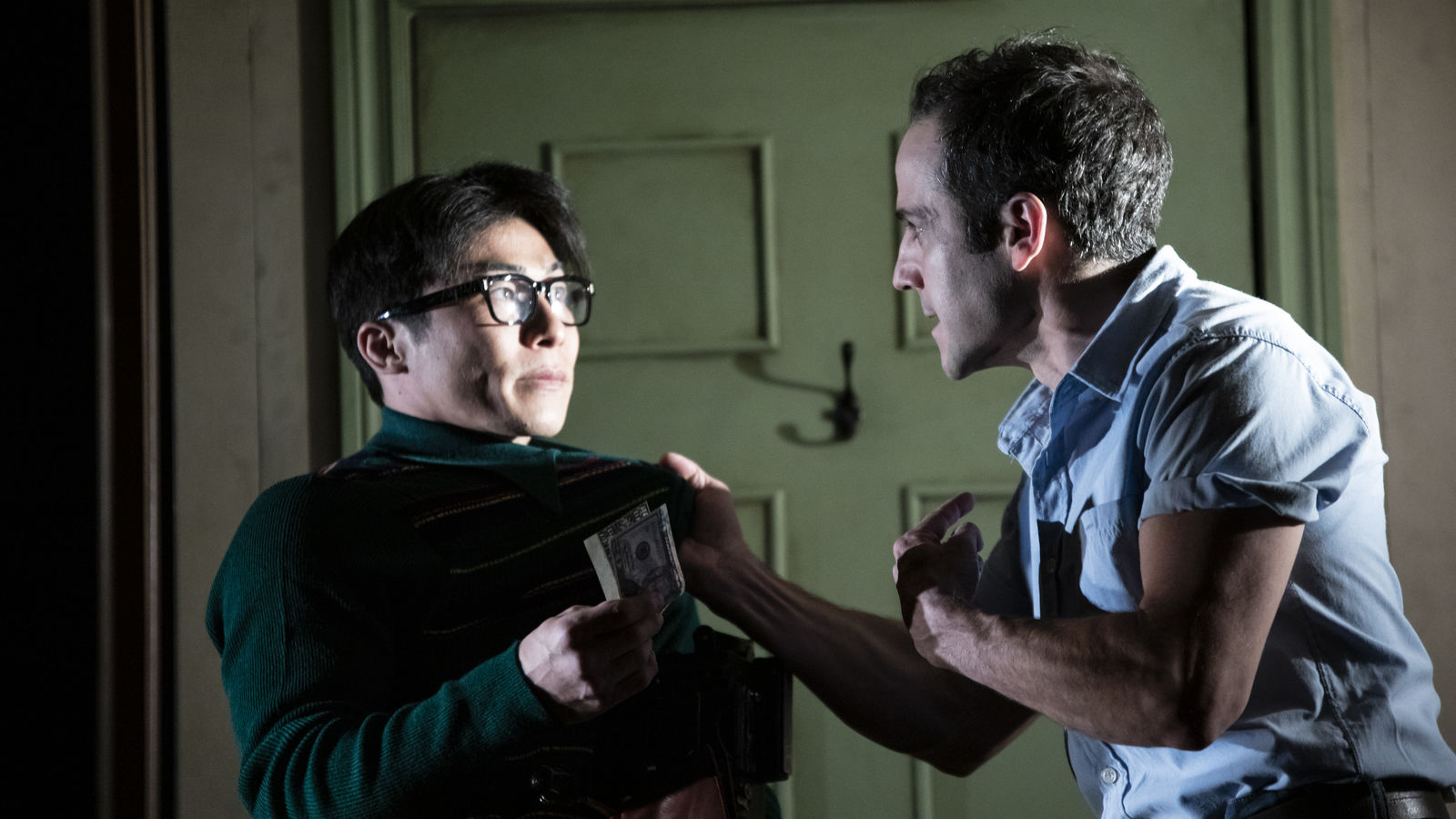
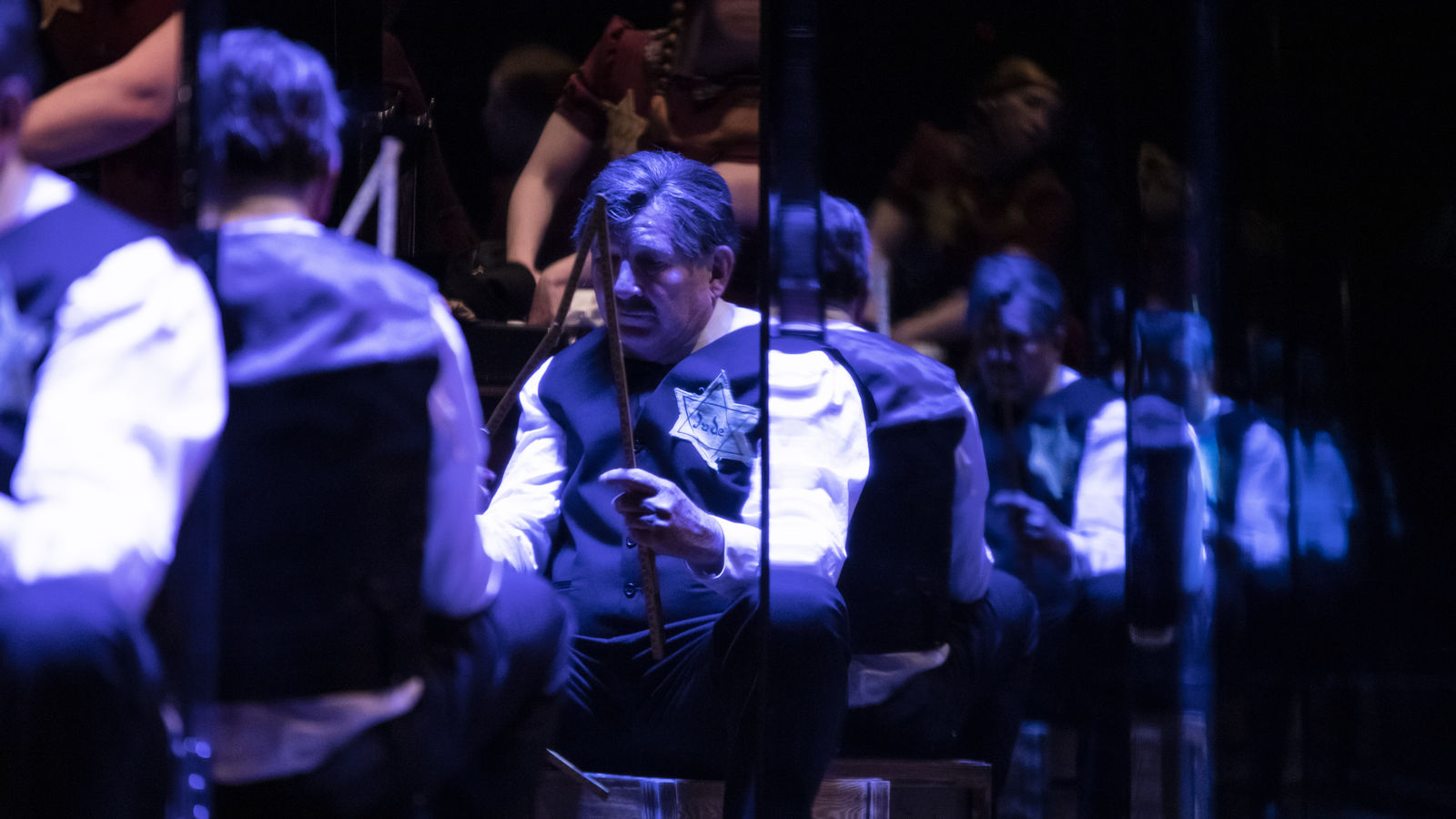
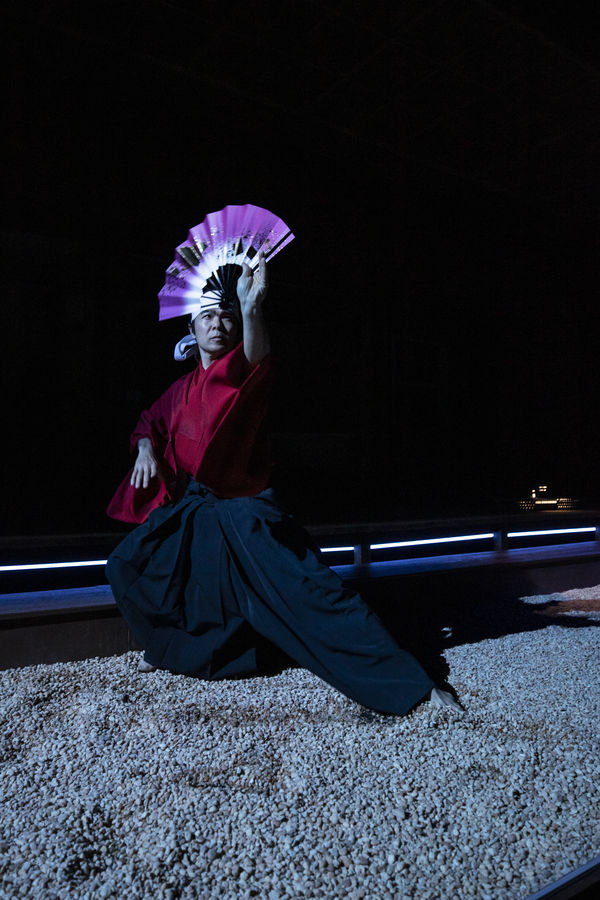
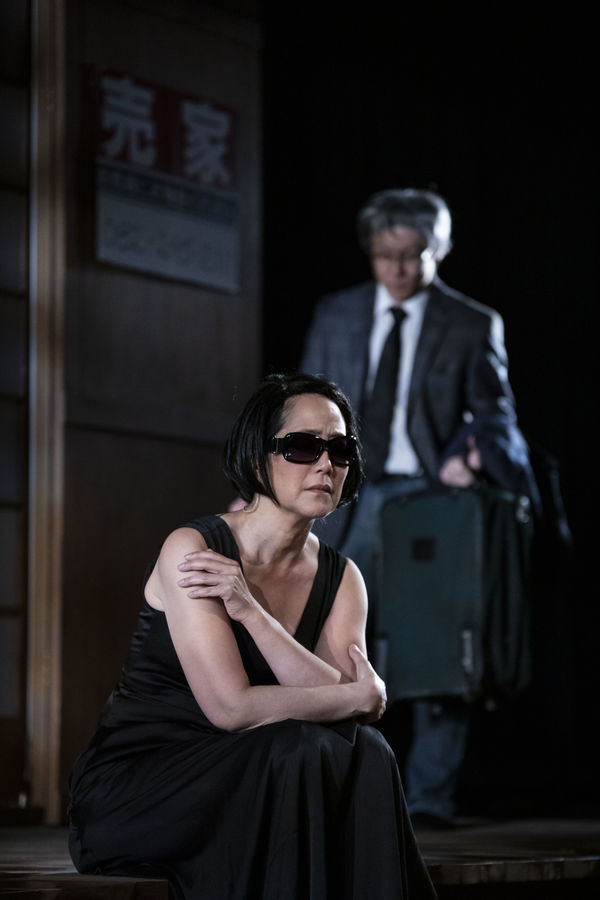
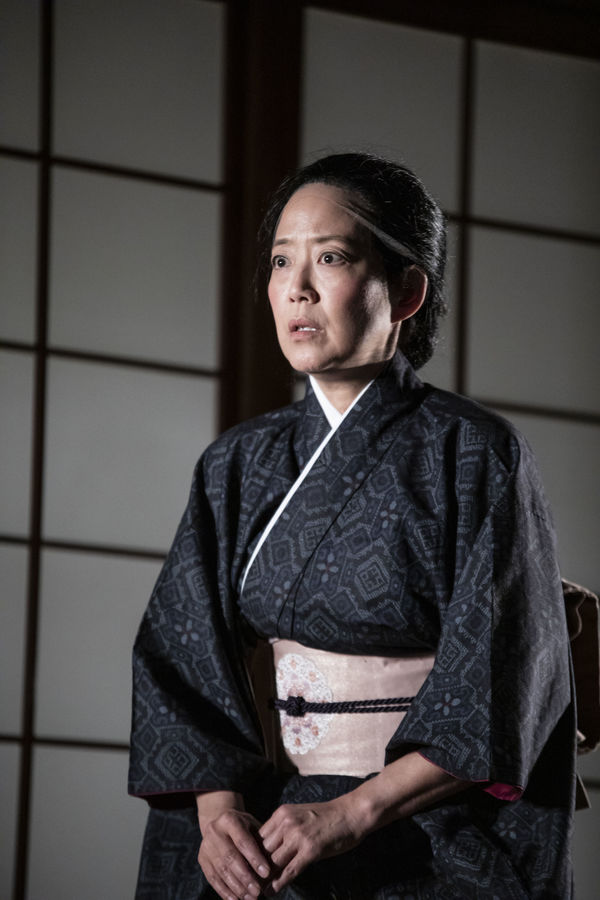
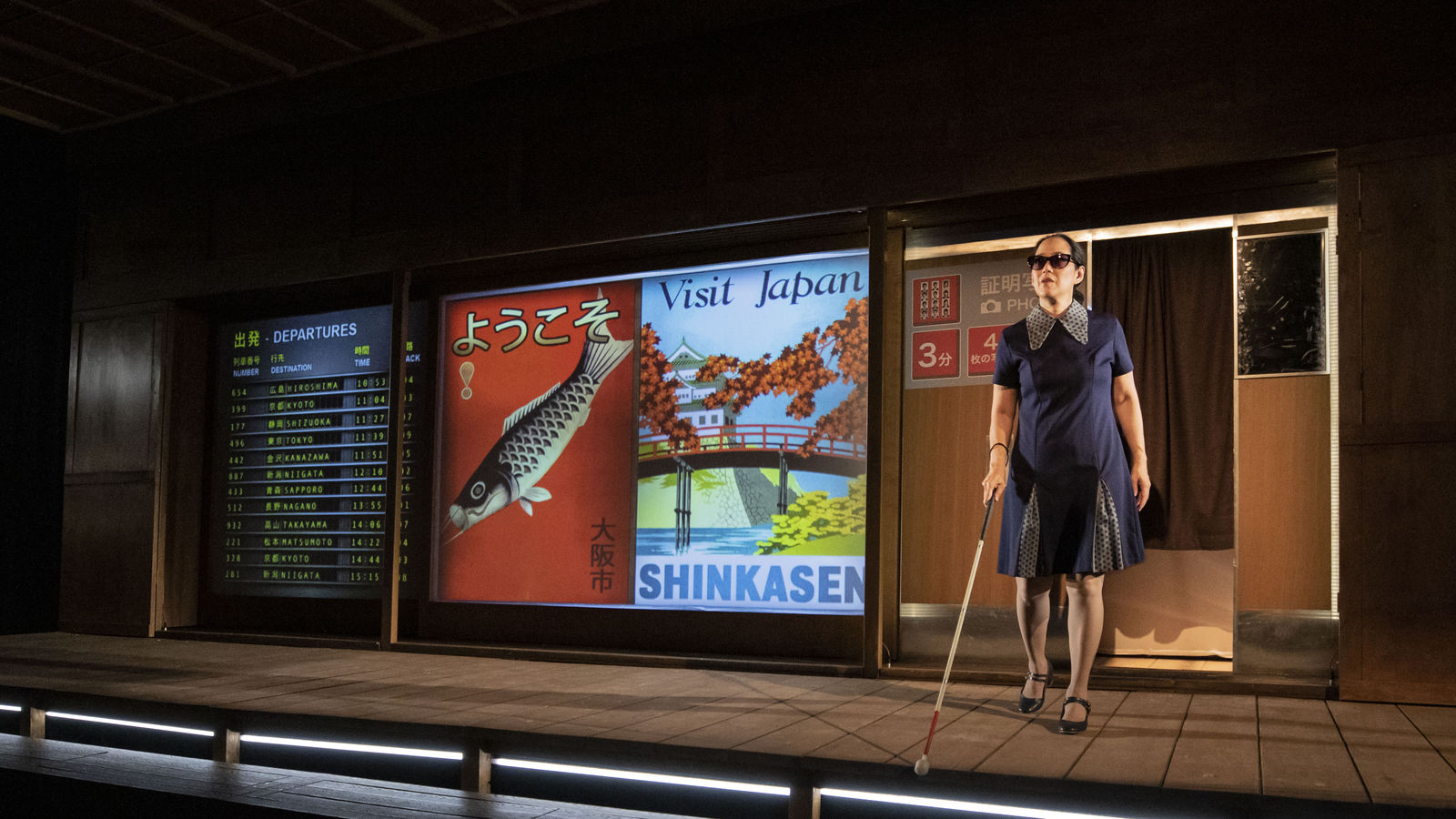
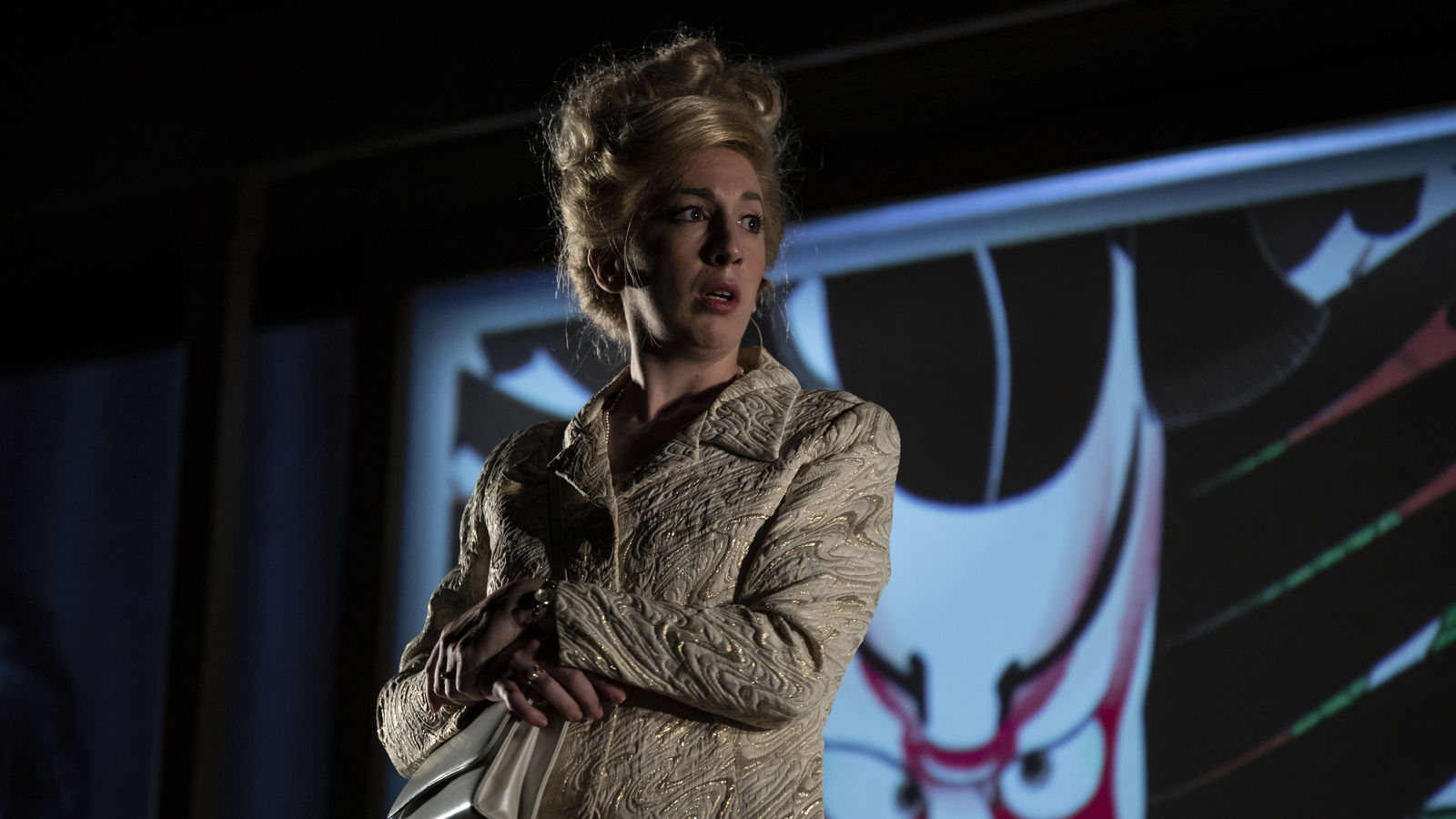
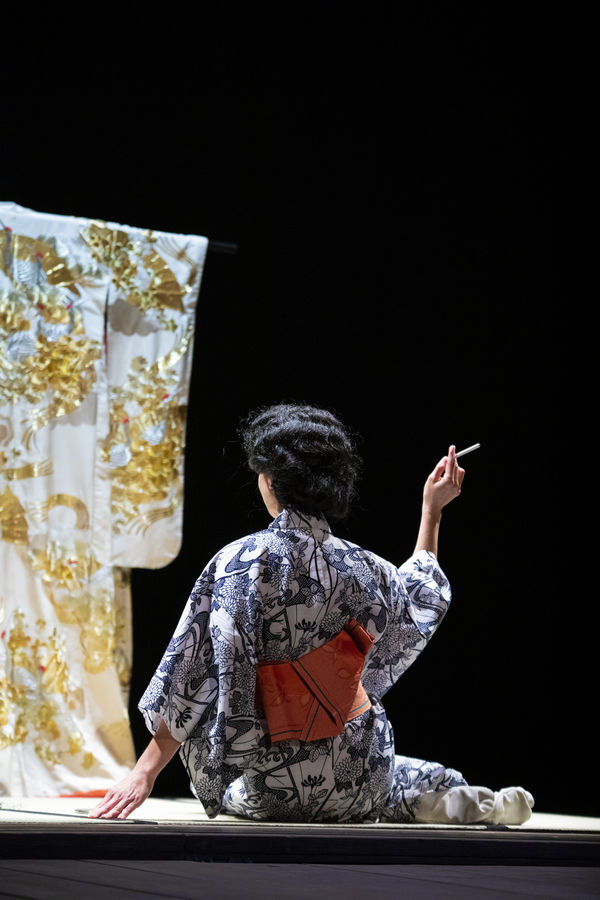
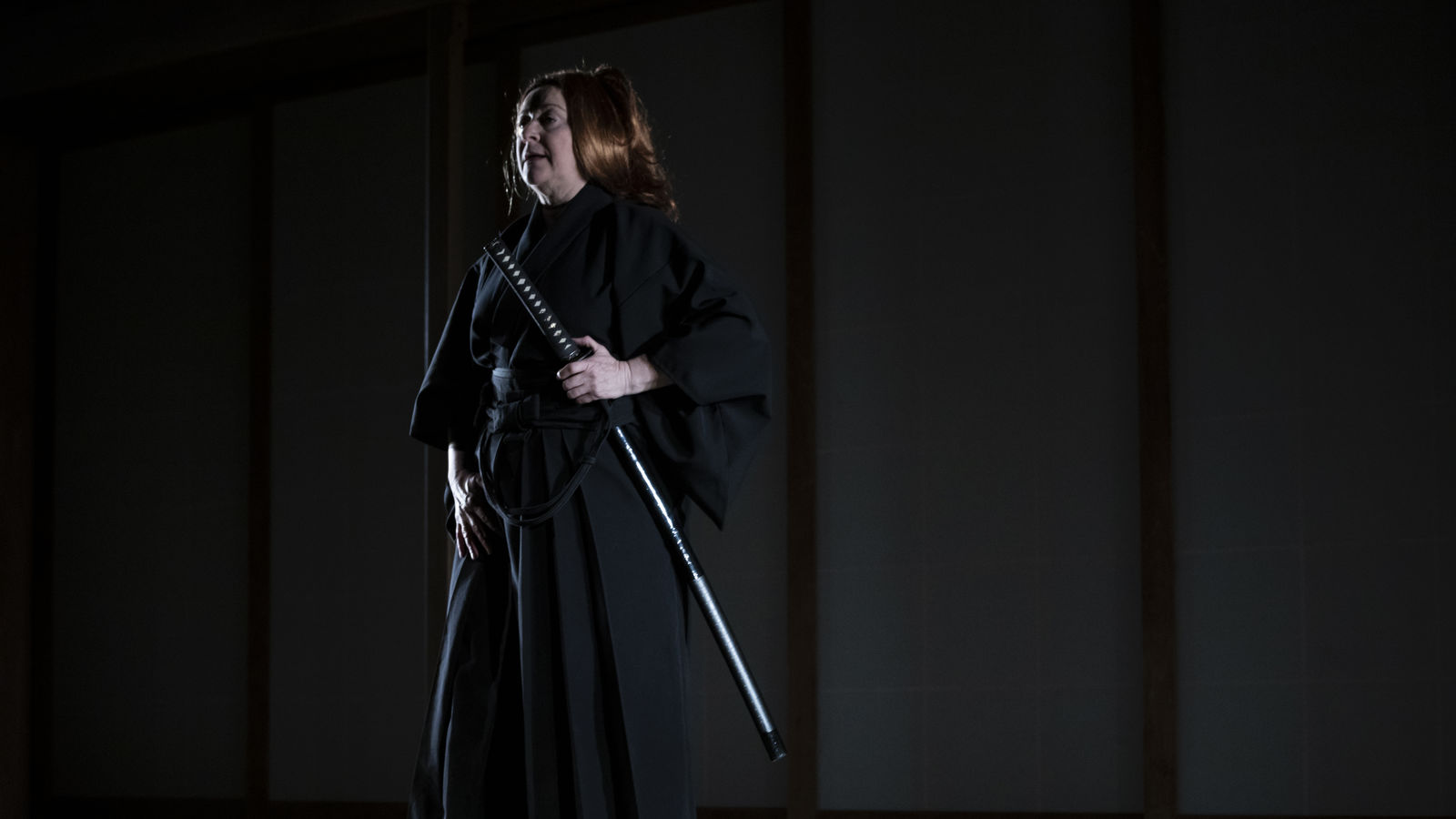
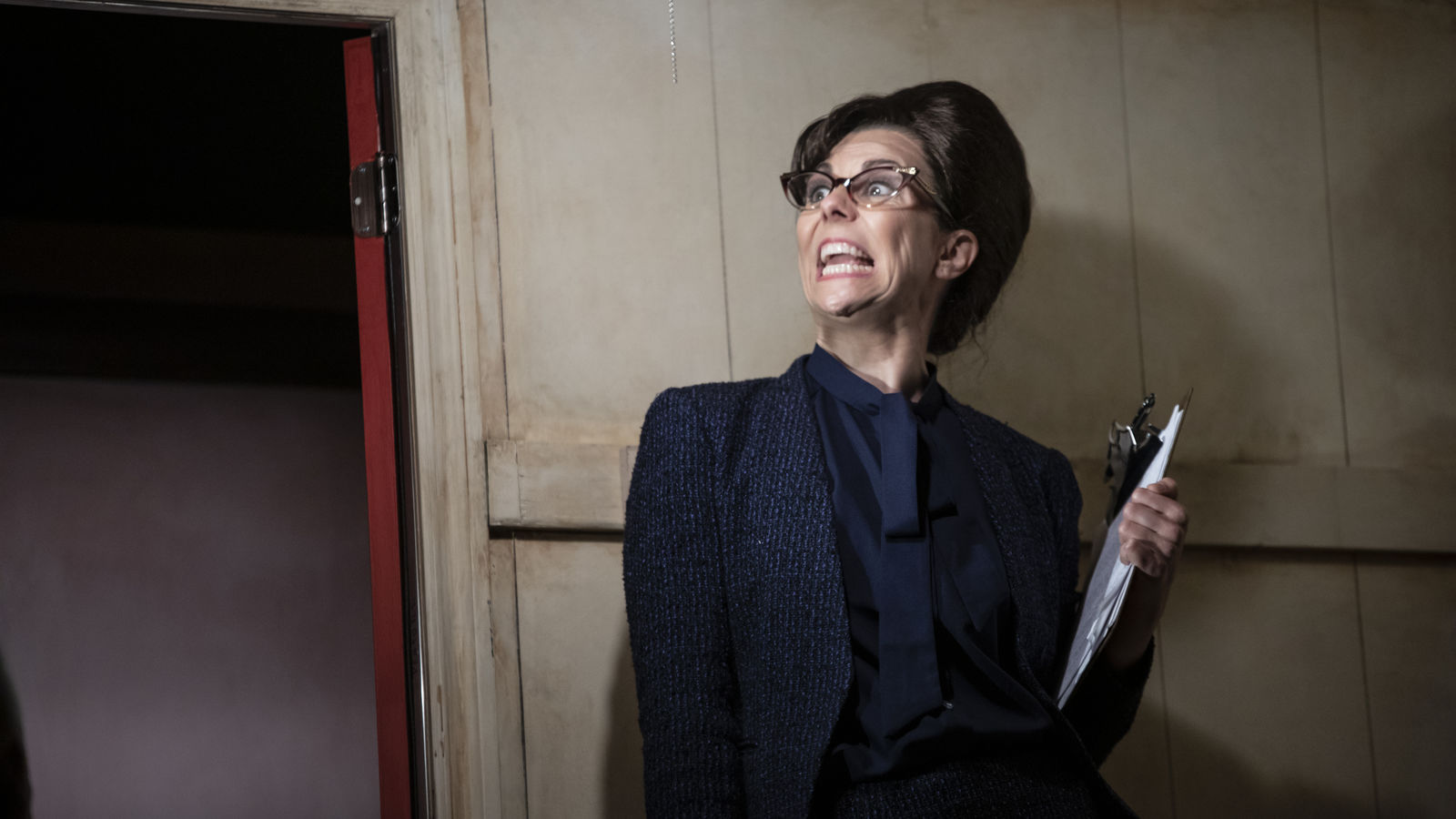
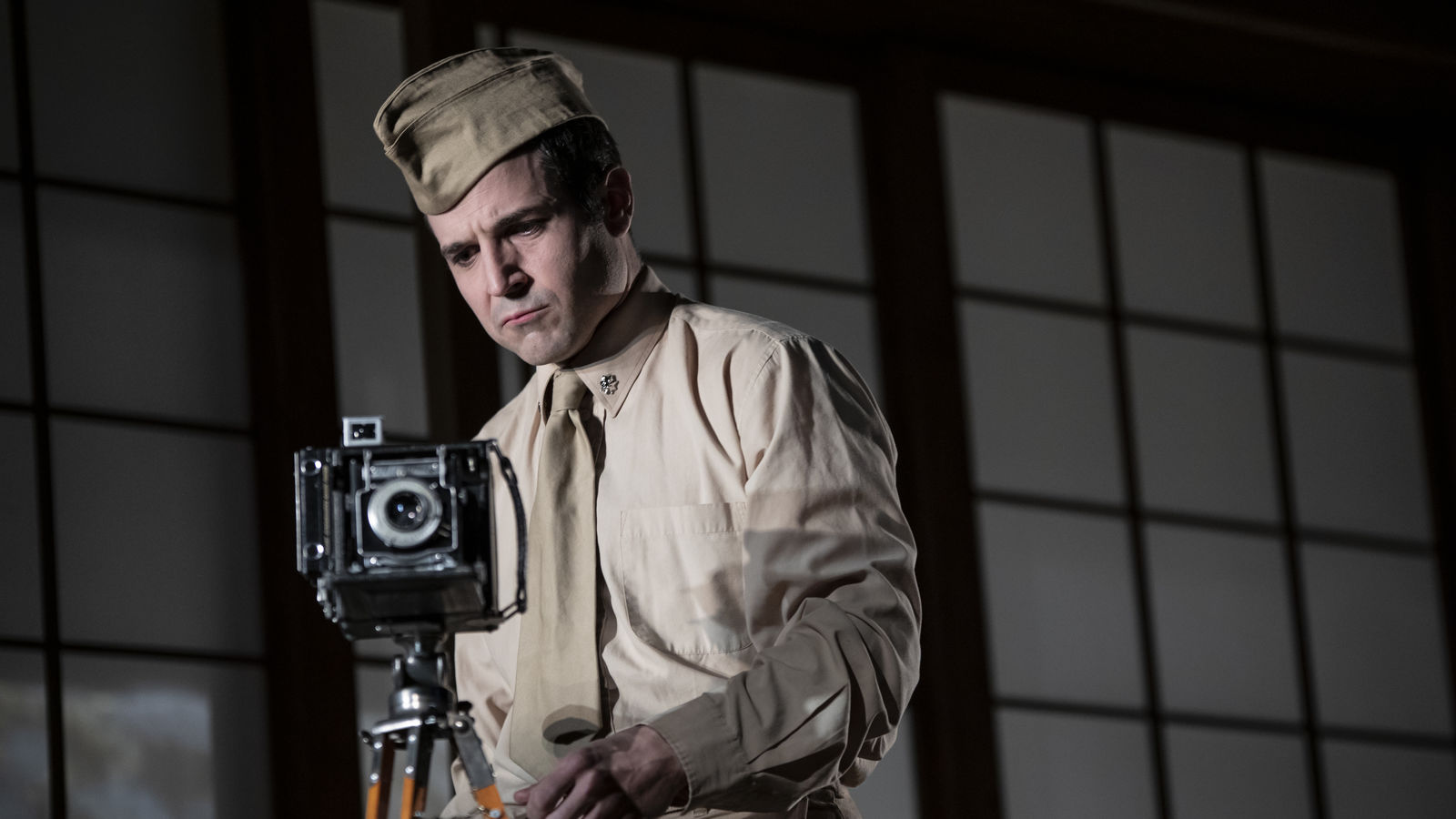
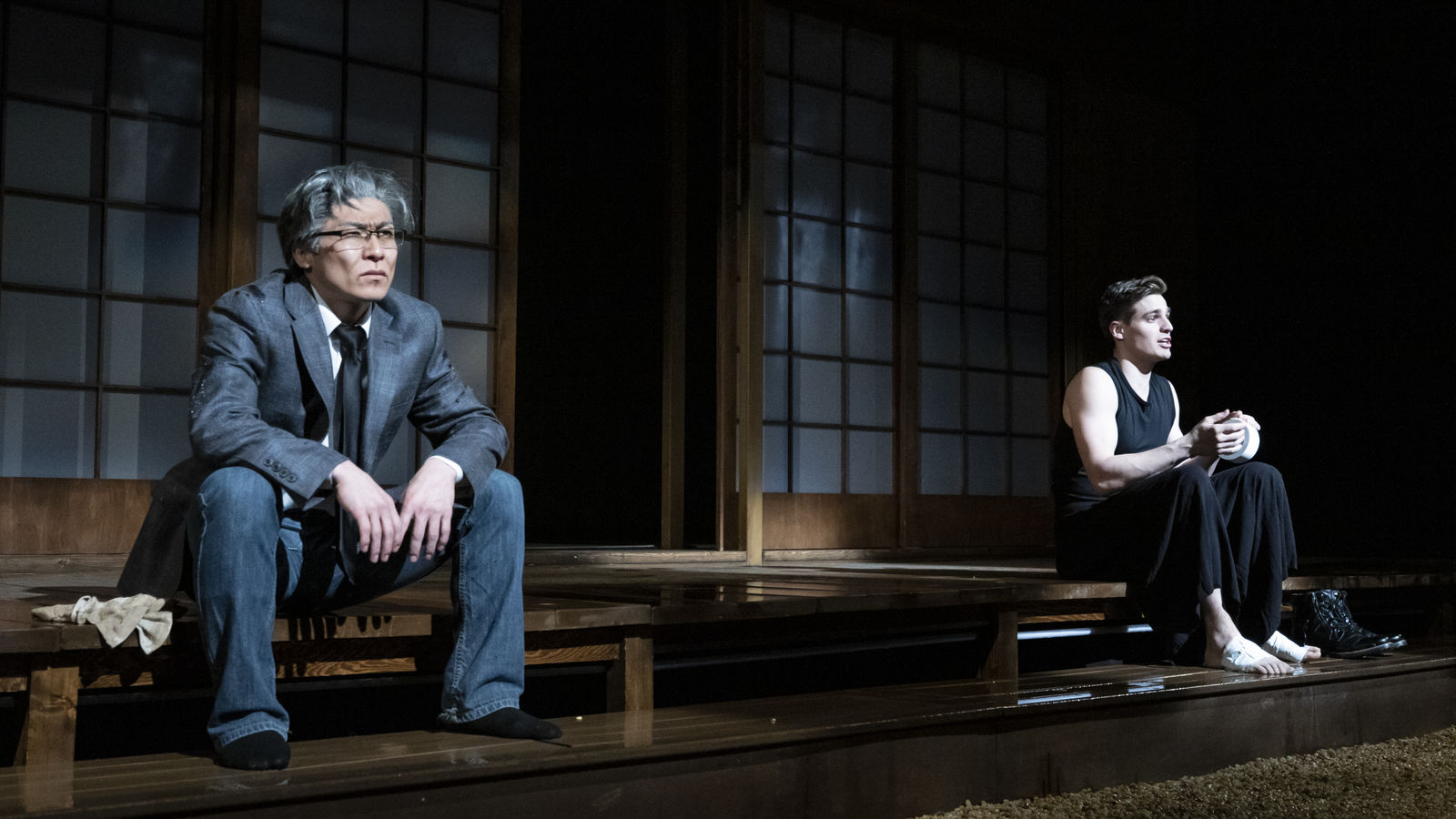
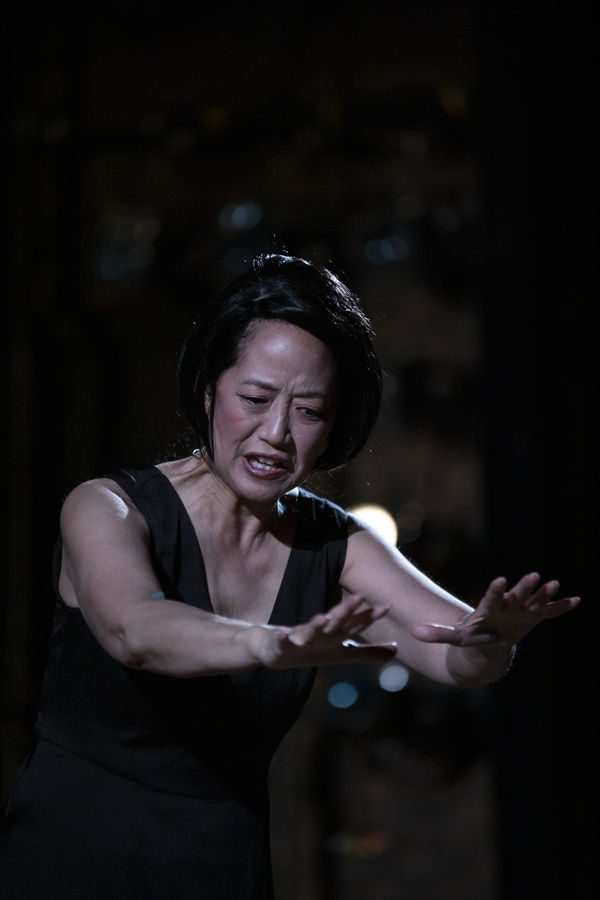
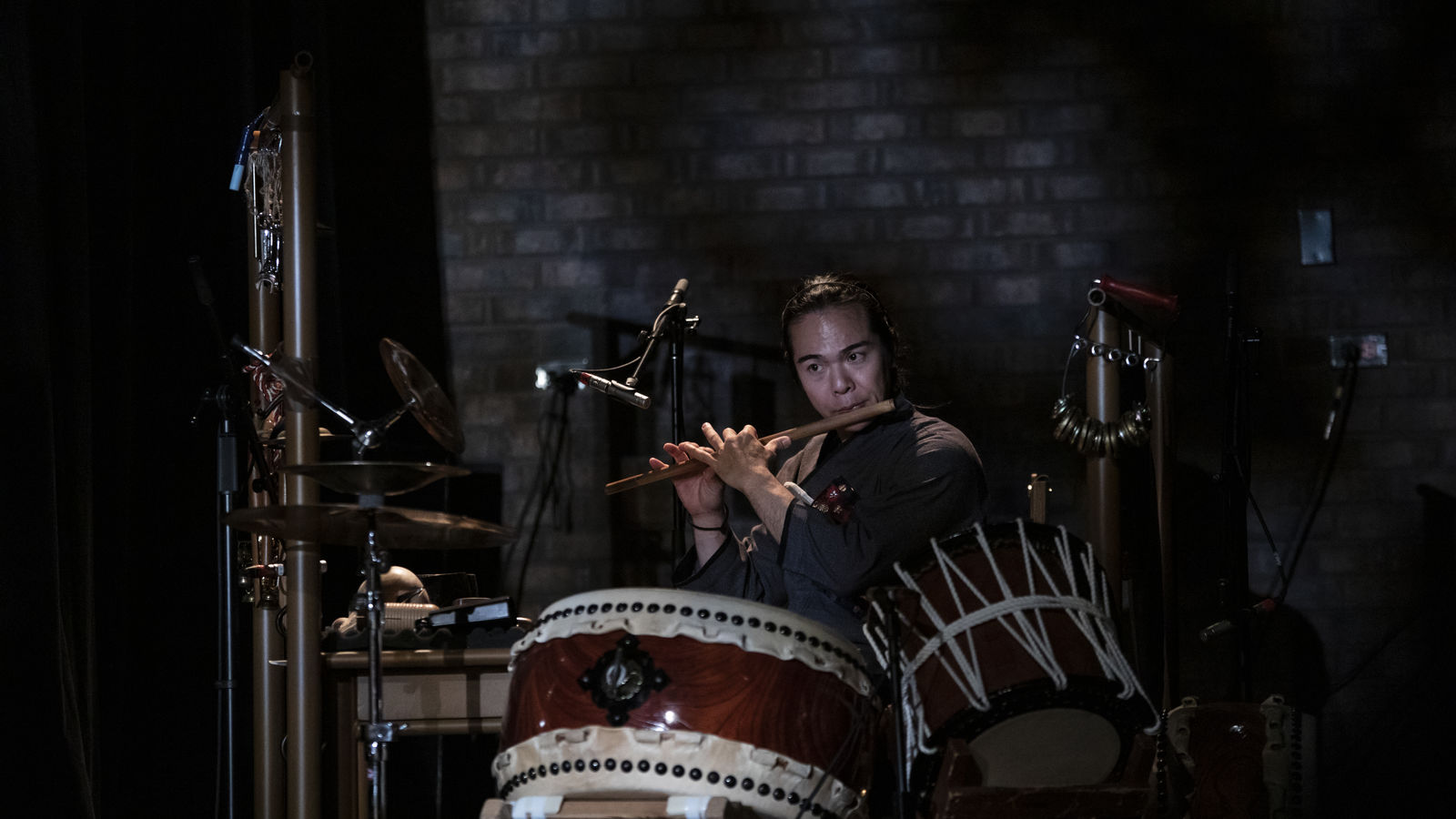
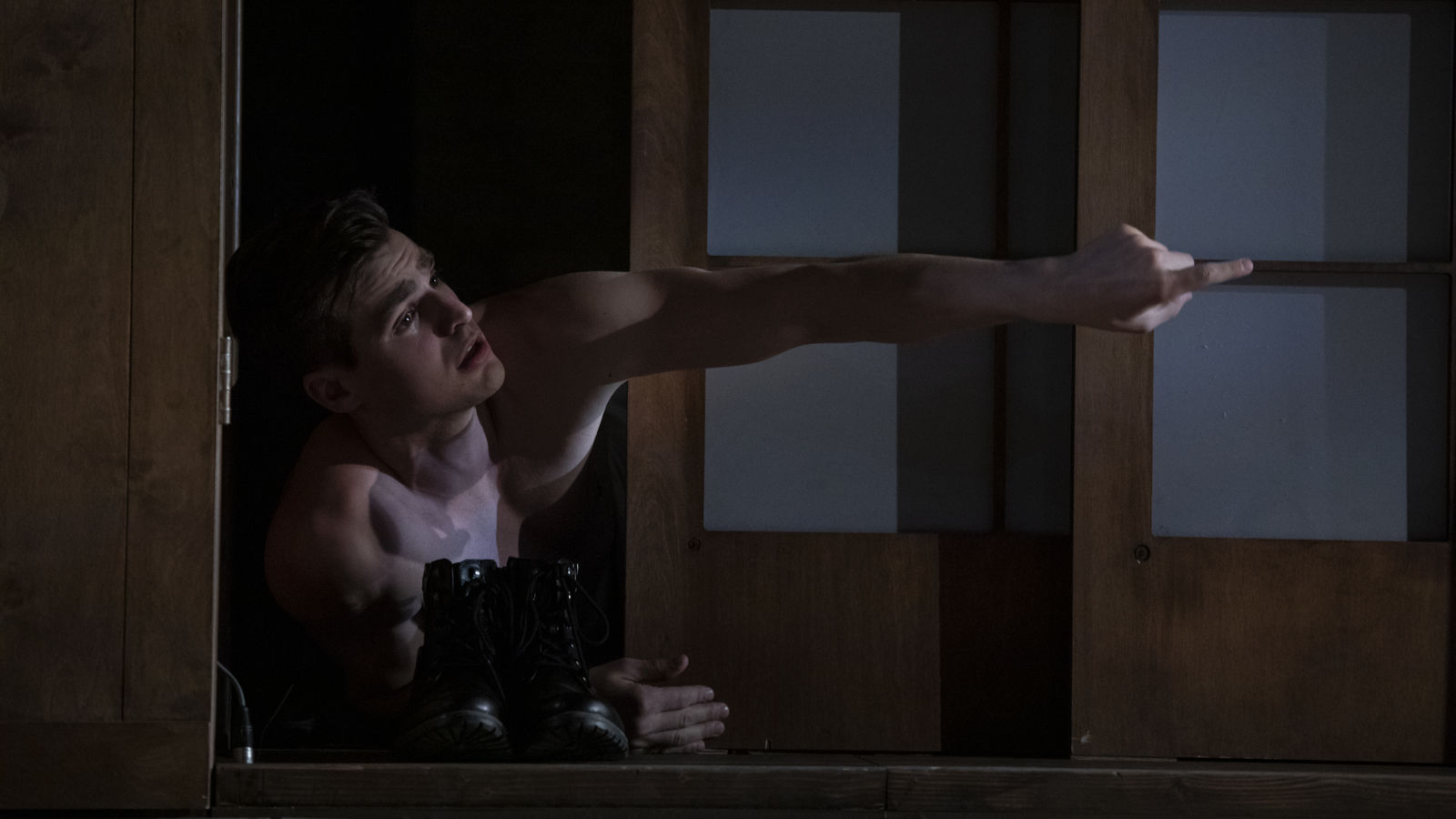
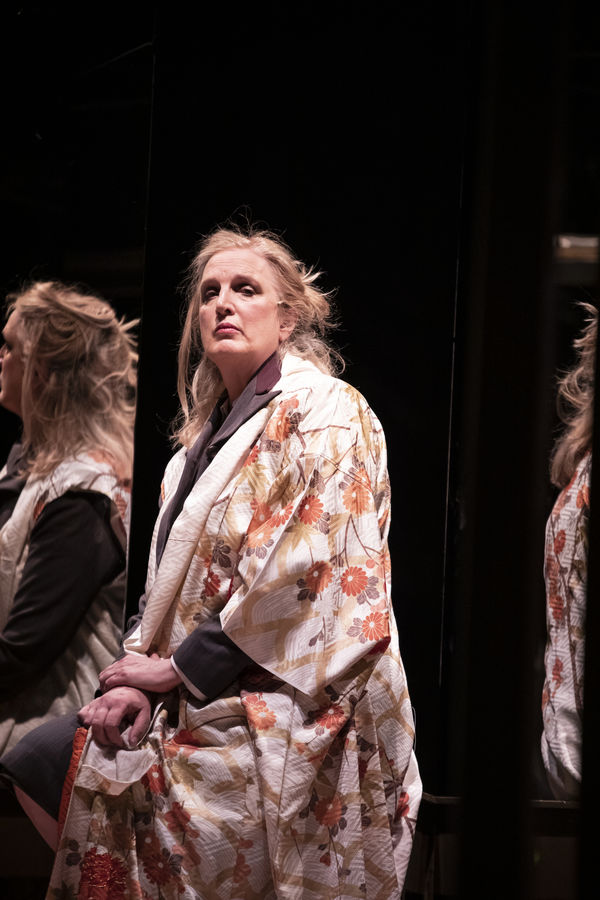
The Seven Streams of the River Ōta
(Québec)
by Ex Machina / Robert Lepage
Directed and designed by Robert Lepage
Stage A
Text: Éric Bernier, Gérard Bibeau, Normand Bissonnette, Rebecca Blankenship, Marie Brassard, Anne-Marie Cadieux, Normand Daneau, Richard Fréchette, Marie Gignac, Patrick Goyette, Robert Lepage, Macha Limonchik, Ghislaine Vincent
Nearly 50 years after the dropping of the atomic bomb on Hiroshima, the Canadian director Robert Lepage is travelling through Japan as he arrives in the rebuilt metropolis. He is deeply impressed by its modernity and relaxed atmosphere. After returning home, he makes Hiroshima the start and end point of a theatrical journey through the last half century. With »The Seven Streams of the River Ōta«, Lepage and his company Ex Machina create a monumental seven-hour opus, a trip through time and space which takes the audience to three continents and a series of different eras. The seven interconnected and, in spite of all the tragedy, optimistic stories in which Lepage illustrates the great events and catastrophes from the Holocaust to the AIDS epidemic correspond to the seven streams of the Ōta River. The story begins with a meeting between the disfigured wife of a former Japanese diplomat and an American photographer tasked with documenting the effects of the atom bombing on everyday life. Their brief relationship produces a son, Jeffrey, who leaves his homeland and travels to New York to find his father. Starting from the love story inspired by »Madame Butterfly«, Lepage and his ensemble create a portrait of human resilience against the backdrop of the apocalypses of World War II, through the path of reconstruction and renewal up to the end of the millennium.
»The Seven Streams of the River Ōta« was the first major project that Robert Lepage brought to the stage with his company in the mid-1990s. This 2019 revival, revisits the stylistic devices of traditional Japanese theatre – including live percussion and moving screens – as well as the central questions of the play: How did a few kilos of uranium change the course of human history in different places around the world? How did the catastrophes of World War II shape not only the lives of the survivors but also those of their descendants?
With: Rebecca Blankenship, Lorraine Côté, Christian Essiambre, Richard Fréchette, Tetsuya Kudaka, Myriam Leblanc, Umihiko Miya, Audrée Southière, Philippe Thibault-Denis, Donna Yamamoto
Creative Director: Steve Blanchet
Dramaturg: Gérard Bibeau
Louisa Blair: Translator – English surtitles
Assistant Director: Ad.le Saint-Amand
Music and Sound Designer: Michel F. Côté
Collaboration to the music and musician: Tetsuya Kudaka,
Set Designer: Carl Fillion
Set Designer (Adaptation): Ariane Sauvé
Lighting Designer: Sonoyo Nishikawa
Images Designer: Keven Dubois
Costume Designer: Virginie Leclerc
Properties Designer: Claudia Gendreau
Production: Ex Machina
Coproduction: Chekhov International Theatre Festival, Moscow, Le Diamant, Quebec City, National Theatre of Great Britain, London, Le Volcan – scène Nationale du Havre and Schaubühne Berlin
Producer for Ex Machina: Michel Bernatchez
Associate Production – Europe, Japan: Richard Castelli-Epidemic
Break times:
1st break: 17.15 - 17.35
2nd break: 19.15 - 20.00
3rd break: 21.15 - 21.35
Supported by the Freunde der Schaubühne am Lehniner Platz e. V.
Ex Machina is funded by the Canada Council for the Arts, the Conseil des arts et des lettres du Québec, the City of Quebec and the Embassy of Canada.
The »Artist in Focus: Robert Lepage« program is supported by the Embassy of Canada and the Québec Government Office in Berlin.
Mit dem Aufruf des Videos erklären Sie sich einverstanden, dass Ihre Daten an YouTube übermittelt werden. Mehr dazu finden Sie in unserer Datenschutzerklärung.
Bei Klick auf die Schaltfläche "Akzeptieren" wird ein Cookie auf Ihrem Computer abgelegt, so dass Sie für die Dauer einer Stunde, diese Meldung nicht mehr angezeigt bekommen.
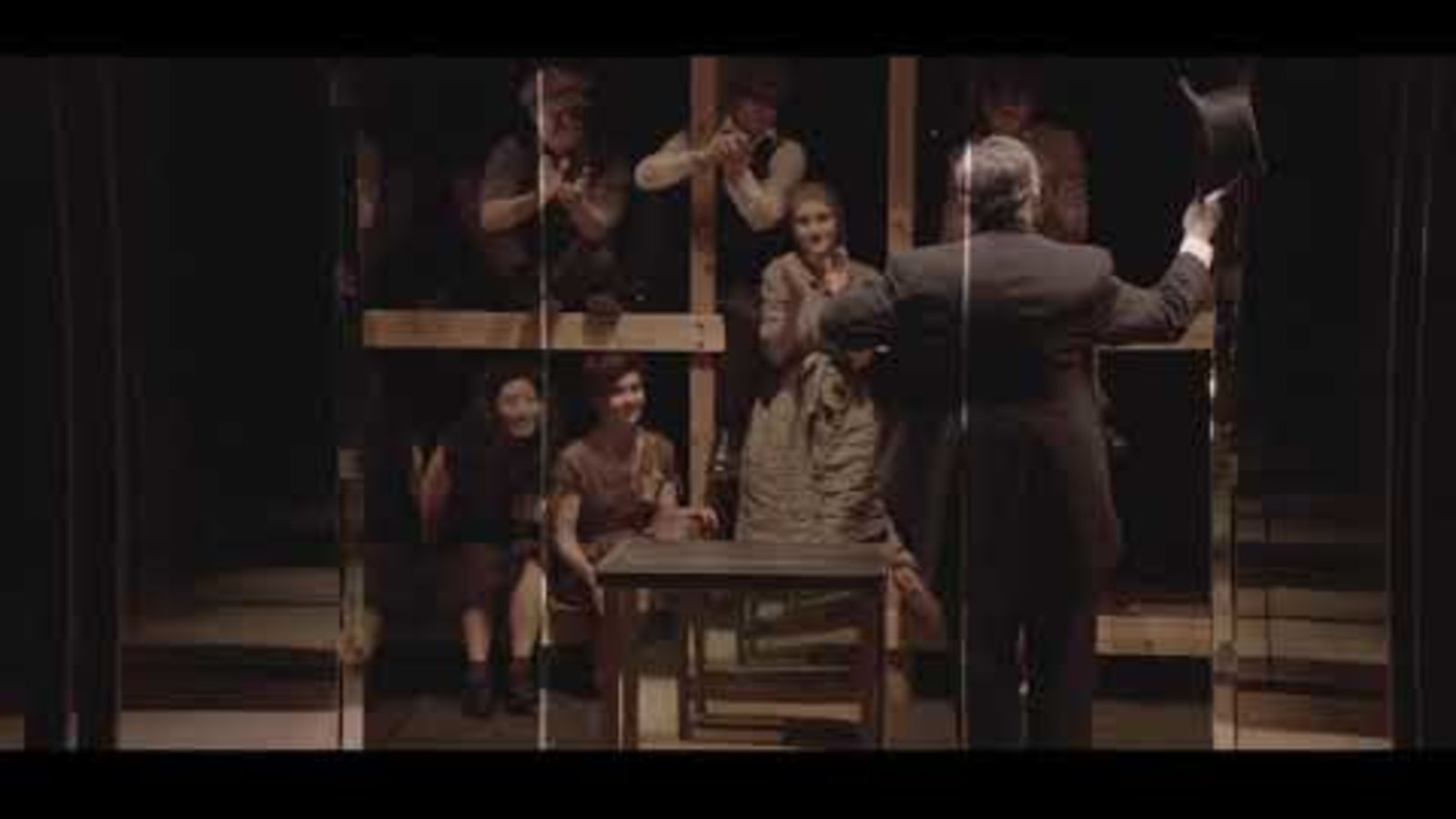
Pearson's Preview
Robert Lepage’s Works of Memory. A Retrospective at the Schaubühne
